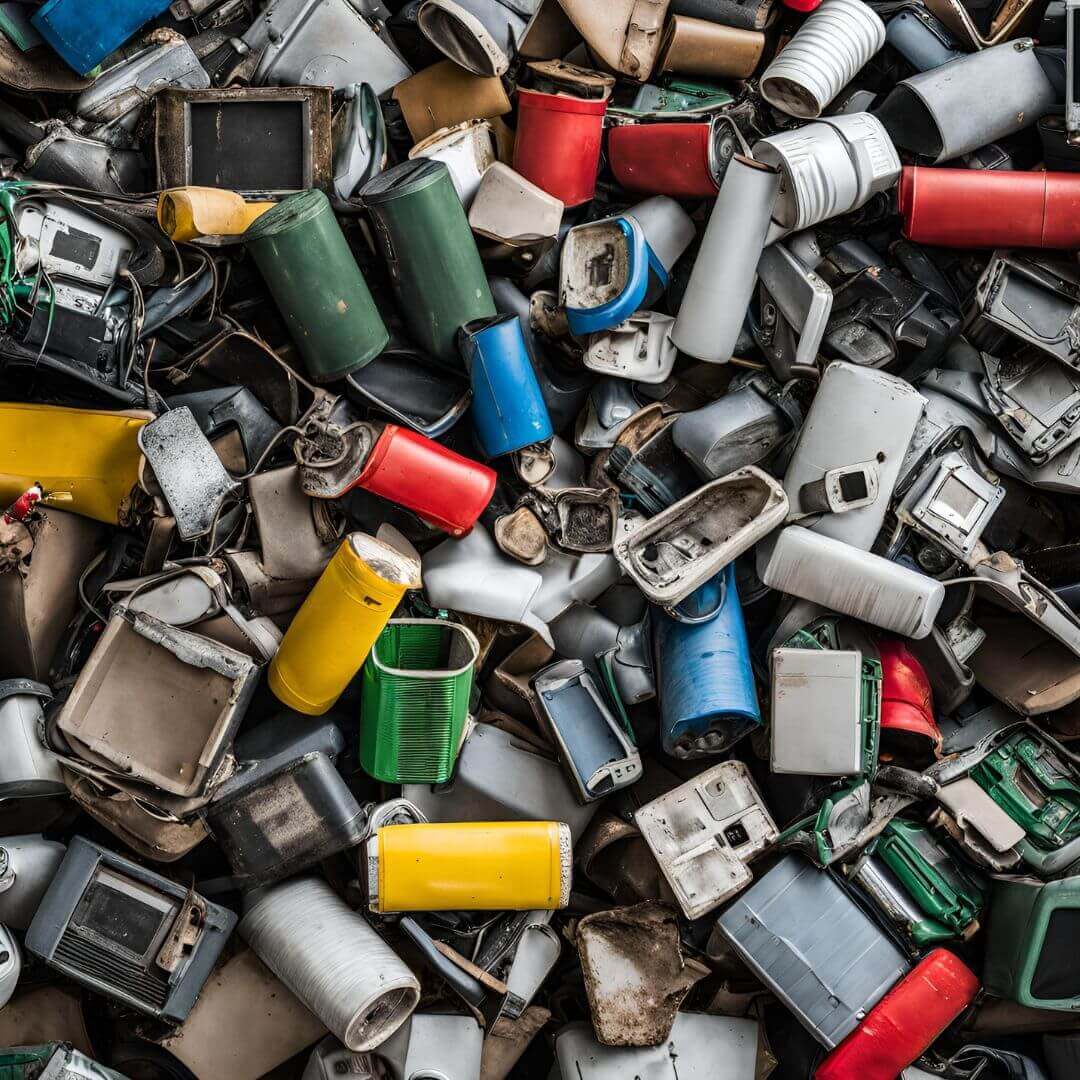Common e-waste items are recycled in a variety of different methods. These methods depend on the specific nature of the e-waste item in question. The way to recycle a computer, for instance, would differ from the way that you would recycle a mobile phone.
Waste management companies use a variety of recycling methods to manage these different electronic waste items. While Cleanway has written extensively about e-waste recycling, we wanted to use this blog to address questions specific to how common e-waste items are recycled.
Electronic Waste Recycling Methods
E-waste recycling methods seek to address the large amounts of e-waste produced and disposed of in our daily lives. It has become a vital part of both waste management and general logistics management.
Electronic products are essential to our daily lives. Common e-waste items like laptop computers, refrigerators, and mobile phones pervade our everyday lives. This is unlikely to change in the future.
E-waste recycling methods vary depending on the electronic item. However, they all seek to find effective, efficient, and affordable ways to recycle a variety of items. This helps to ensure environmental sustainability logistical best practices.
Common E-waste Items
Common e-waste items include all of the technology found in both offices and households. Items like telephones, while still common, are seeing less popularity in use due to the rise of alternative products.
Household E-waste Items
In our blog “E-waste Management in the Modern Age” we provide a short list of common e-waste items. This is the list below:
- Mobile phones: Discarded due to upgrades or damage; they contain valuable metals.
- Laptops and desktop computers: Outdated or malfunctioning models with recyclable parts.
- Tablets: Broken screens or outdated technology need proper disposal.
- Printers: Non-functional or obsolete printers made of plastic or metal.
- Keyboards: are worn-out or incompatible peripherals made of plastic and electronic components.
- Hard drives: Replaced due to insufficient storage capacity or malfunction, which contained sensitive data.
- Cables and chargers: Unusable due to damage or obsolescence; frequently contain copper and plastic.
- TVs (televisions): Damaged or outdated flat screens or CRTs that contain hazardous materials.
- DVD players: non-functional or obsolete devices with recyclable components.
- Digital cameras: broken or outdated models that contain electronic components and batteries.
- Microwaves: broken units that contain electronic circuitry and metal
- Refrigerators: non-working units with electronic controls and coolant chemicals.
- Washing machines: Discarded due to mechanical failure or upgrades, including electronics.
- Batteries: Used or expired batteries that contain heavy metals and toxic chemicals.
- LED Bulbs: Burned or broken bulbs containing electronic components and glass.
While this is an extensive list, many of these items are commonly associated with a household. Businesses might have refrigerators, for instance, but many people will think of their own kitchen when we’re talking about them.
Business E-waste Items
- Printers: While offices have moved towards more paperless options, printers still pervade the average office space
- Telephones: telephones and work numbers are a common way to communicate in office spaces
- WiFi Routers: WiFi connects allow for easy access to the internet and the e-business associated with it.
- Paper Shredders: Paper shredders are a great way to destroy sensitive office paper.
- Office computers: Specialised office computers allow for easy and effective work usage.
- Projectors: Projectors are an essential part of communicating during meetings.
- Copiers: Copiers allow for the easy sharing of paper information.
- Fax Machines: While old, fax machines are still found in a number of workplaces.
- External Hard Drives: These hard drives allow for the storage of large amounts of electronic data.
- Network Equipment: Network equipment include internet access and general telecommunications equipment.
- Document Scanners: Document scanners copy information for digital archives.
- Servers: Office connectivity allows for co-workers to share information in a secure place.
- Power Units: Emergency power units ensure that businesses can operate even if the electricity supply is unstable.
This list of office electronic items represent the variety of products available. It is important for them to be disposed of and recycled properly.
How Computer Recycling Works
Computer recycling includes the breakdown of computers into its various components. This allows for each component to be recycled in a way that is best for it.
LED screens, for instance, can be reused in certain ways. However, this would differ from how the plastic surrounding the screen would be recycled. This breakdown is essential when separating waste types into different waste streams.
Computer Recycling Scheme
Setting up a computer recycling scheme can help to promote recycling services and general e-waste management. Having designated collection points ensures that recycling is promoted for both businesses and households.
Additionally, old computers have a variety of disposal options available. These drop off points can double up as donation points. This gives free electrical supplies to those who might not otherwise be able to access these materials.
Mobile Phone Recycling
Mobile phones contain a large amount of valuable materials both in their batteries and in their circuit boards. Extracting these materials during the recycling process helps to lessen the need for extraction. Old mobile phones are far more beneficial than people realise.
Additionally, municipal recycling centres provide a unique opportunity for communities to get together and work together to recycle their mobile devices. Many of these centres also have drop off areas where these items can be donated to those in need.
E-Waste Recycling Services
While computer recycling is a major part of e-waste recycling services, there are many other essential electronic items that can fit a recycling scheme. Local council services can partner with small businesses to promote the recycling of items like printer cartridges, batteries, and other electronic equipment.
Cleanway provides comprehensive e-waste management and recycling services to a host of clients across Australia. Our team comprises of waste industry specialists who can help your business recycle e waste in a method that suits their specific needs and wants.

